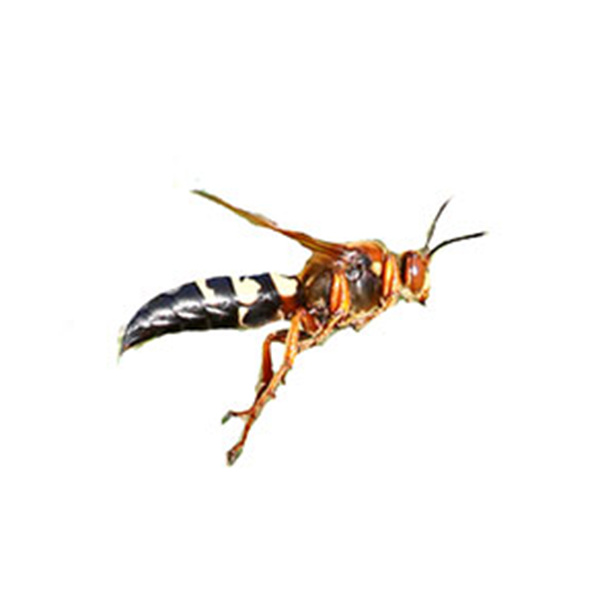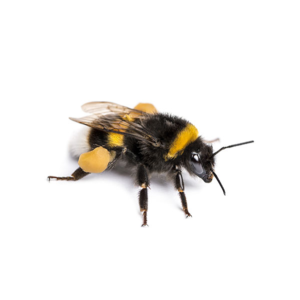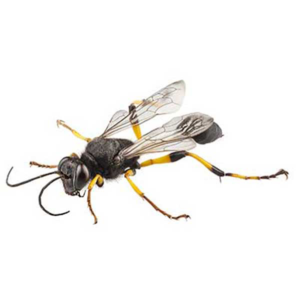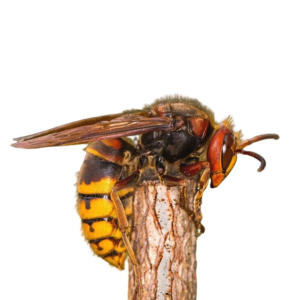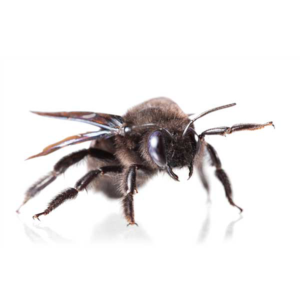Cicada Killer Wasps in Anaheim
As one of the largest wasp species in North America, cicada killer wasps can be frightening to come across. They’re named for their habit of attacking cicadas mid-flight, stinging them until paralyzed, and returning to the wasp’s nest to feed their larvae. These insects are most common in the southern regions of the United States, Mexico, and some parts of Central America. Cicada killer wasps mainly live in small burrows, which they dig into soft and easily draining soil.
Cicada Killer Wasp Habitat
Cicada killer wasps are most active in the summer, with adults emerging in late June or July. They spend most of their time visiting flowers or digging burrows in sandy, lightweight soil. These wasps are known for building their nests near lawns, golf courses, and other open areas with a large cicada population. Male wasps spend their time guarding the nest from potential predators, while females attack cicadas to feed their young.
Cicada Killer Wasp Behaviors, Threats, or Dangers
Despite their scary appearance and name, cicada killer wasps are not aggressive toward humans or pets. Males do not have a stinger but can be territorial, and females generally only sting if they feel threatened. While stings are fairly rare, they can be painful and may trigger a dangerous allergic reaction in some people.
Though they aren’t as dangerous as some other wasp species, cicada killers are still a nuisance to have on or near your property. In addition to the threat of being stung, these wasps can dig large burrows that disrupt plants and vegetation. Over time, they may even remove enough soil beneath walkways to make the ground unstable. If you notice cicada killers on your property, it’s best to contact your local wasp removal company for fast and effective help.

